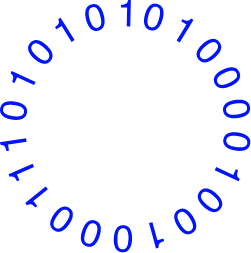By BGV Operating Partner Ron Sege
While on holiday in India, Jagadeesh Ambati (JD) turned to his wife who was gazing at the huge piles of trash and debris strewn across the sides of the road. “Waste management is such an enormous problem here,” Jen quipped, “but it’s pretty bad all around the world, even back in Oakland. Who’s realistically going to make a dent here, and clean this up?” she asked him.
This is the story about one of our most exciting climate tech companies, Everest Labs, and the village that helped build the company so far.
JD’s wife challenged him to put his technical skills and entrepreneurial grit to use to solve real-world problems with legitimate societal impact. Unwittingly, she had kicked off a journey aimed at understanding the economics of waste management and the importance of recyclables to society in the context of reuse in manufacturing and climate change.
In 2018, JD met material recovery facility (MRF) operators and learned about the challenges they face in running their plants. For example: lack of data, using human sorters for quality control roles, large expensive equipment lacking real time intelligence, and losing billions of recoverable recyclables to landfill. Once JD developed a deeper understanding of their pain points, and their resource gaps, he decided to establish Everest Labs.
Our partner Eric Buatois discovered JD at the Extreme Tech Challenge CEO Summit towards the end of 2019. Impressed with Everest’s use of robotics and AI to automate material recovery, Buatois had BGV’s investment team dig into specifics about the industry, business model and potential long-term societal impact this company was capable of. At the time, Everest had installed robots with several customers in the San Francisco Bay Area, and was earning a strong reputation in the Valley. The pandemic and associated “Great Resignation” had started to bite, and, as a result, more recyclables ended up in landfills rather than being reused, signaling a crisis in the making for MRFs.
Given the company’s promising traction, I took over the BGV board seat in early 2021 and later became Everest Labs’ Executive Chairman to help JD scale the business. Fast forward to January 2022 and Everest’s pioneering AI-powered vision system has seen and sorted a billion waste objects, while training its systems for accuracy and broader deployment.
As Woody Allen famously quipped, “80 percent of life is just showing up…” In sum, AI powered vision + robotics + Great Resignation = right place, right time.
One of our customers in the San Francisco Bay Area recently told me, “we used to throw people at the problem, but in today’s world we just can’t do that anymore. Technology is the only solution we have, and Everest Labs’ solution has met the challenge.”
The Great Resignation means that MRFs will likely never go back to the ‘old normal’ with large human labor pools who stand for hours in front of belts while manually sorting potential recyclables. JD plans to service this new normal with an army of AI-powered robotic sorters, and eventually expand Everest’s software offerings throughout the plant to enable operators to run more effectively and efficiently. His solution, ideally, will provide actionable data to package goods companies so they can find ways to recover and reuse even more material, and recoup enormous value lost in the process.
This entire journey – from observation, research and education to innovation, value capture and venture creation – is all thanks to an off-hand comment by JD’s wife, the insatiable curiosity and laser-focus of an entrepreneur, and the support of a village that includes BGV.
